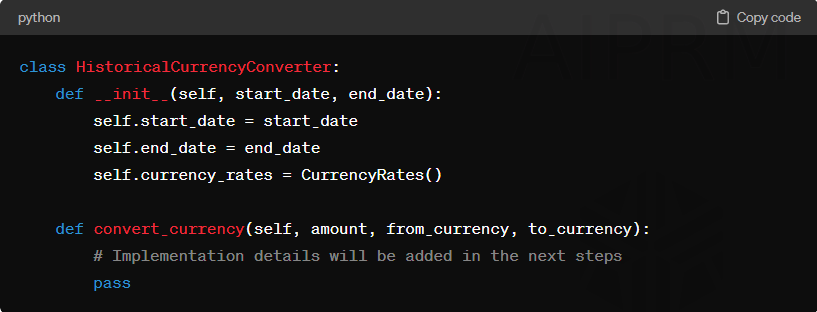A Guide to Building a Historical Currency Rates Converter: Step-by-Step Tutorial
Currency exchange rates are constantly changing, making it essential for businesses and individuals to track historical rates for analysis and decision-making. In this tutorial, we will learn how to build a historical currency rates converter using Python. This converter will allow users to retrieve and convert historical currency exchange rates based on their specified date range.
Step 1: Setting Up Your Python Environment
Before we start coding, make sure you have Python installed on your system. You can download Python from the official website and follow the installation instructions.
Next, we need to install the forex-python library, which provides a simple API for fetching exchange rates. Install the library using pip:

Step 2: Importing the Necessary Libraries
Open your Python editor and start by importing the required libraries:

Step 3: Creating the Currency Converter Class
Next, create a class named HistoricalCurrencyConverter that will handle the conversion of historical currency rates. Define the class and its constructor as follows:

Step 4: Implementing the convert_currency Method
Inside the HistoricalCurrencyConverter class, implement the convert_currency method to fetch historical rates and perform the currency conversion:

Step 5: Using the Currency Converter
Now, let’s create an instance of the HistoricalCurrencyConverter class and use it to convert currency:

Step 6: Running the Currency Converter
Save your Python file and run it. You should see the converted amount printed to the console, based on the historical exchange rate for the specified date range.
Conclusion
In this tutorial, we learned how to build a historical currency rates converter using Python. This converter allows users to retrieve and convert historical currency exchange rates based on their specified date range. You can further enhance this converter by adding error handling, additional currency conversion options, and user interfaces for better usability.
